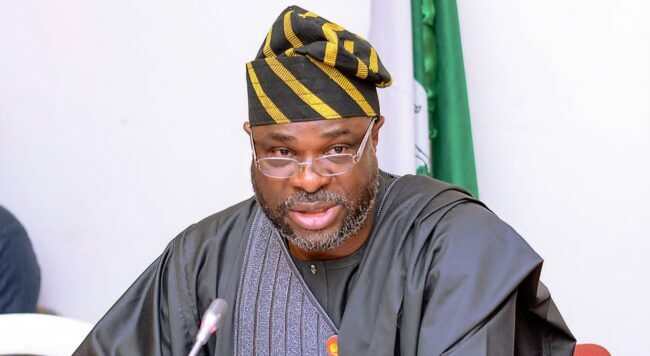December 04, (THEWILL) – The Federal Competition and Consumer Protection Commission has refuted claims that it is investigating Air Peace over alleged arbitrary airfare hikes.
Instead, the Commission clarified that its recent engagement with the airline was an inquiry aimed at understanding its pricing structure in response to consumer complaints.
FCCPC’s Director of Surveillance and Investigation, Mrs. Boladale Adeyinka, made this clarification on Tuesday in Abuja during a meeting with Air Peace Chairman, Dr. Allen Onyema, and his team.
Adeyinka noted that the inquiry was not an investigation but a collaborative effort to address consumer concerns.
“Thank you for honouring our invitation in person. We have gained valuable insights into your operations. Let me reiterate, this is not an investigation. It is an inquiry to understand the basis of consumer complaints and your pricing methodology,” Adeyinka said.
She commended Air Peace for its contributions to the aviation sector and assured the airline of the Commission’s support.
“We exist to balance the interests of businesses, operators, and consumers. Business stability and sustainability remain central to our mandate. We will intervene where necessary to benefit all air passengers and aviation service users,” she added.
Addressing the FCCPC, Onyema explained the complexities of airfare pricing, stating that ticket costs are influenced by global aviation standards and operational realities in Nigeria.
He lamented that the fare regime in the country does not align with the high cost of keeping aircraft operational.
According to Onyema, safety is Air Peace’s top priority, even at the expense of profitability.
“Aviation safety is non-negotiable. For us at Air Peace, safety is a precondition, not just a priority,” he said.
He highlighted the stark contrast between the cost of air travel in Nigeria and other countries, where ticket prices typically range from $250 to $540 per hour.
Despite these realities, Onyema stated that Air Peace has deliberately kept fares affordable due to the low purchasing power of Nigerians.
Onyema detailed the financial challenges faced by airlines in Nigeria, including exorbitant loan interest rates of 33-35%, annual insurance premiums of $12 million, fluctuating aviation fuel prices, and high maintenance costs—all denominated in dollars.
“Operational costs in Nigeria are disproportionately high, accounting for up to 70% of business expenses compared to 40% in other countries. This makes it difficult for airlines to break even, even with full passenger capacity,” he explained.
He added that the cost of landing an Airbus in Nigeria is about $4,000 per hour, alongside charges for engine flight cycles and part replacements. These costs, if fully passed on to consumers, would make air travel unaffordable for most Nigerians.
Onyema reaffirmed his commitment to serving Nigeria, citing instances where Air Peace intervened during critical moments, such as repatriating stranded Nigerians during the COVID-19 pandemic at no cost to the government.
“My dedication to this country remains unwavering. Despite the challenges, nothing will diminish the patriotic spirit that drives Air Peace,” he stated.

 7 hours ago
5
7 hours ago
5

















